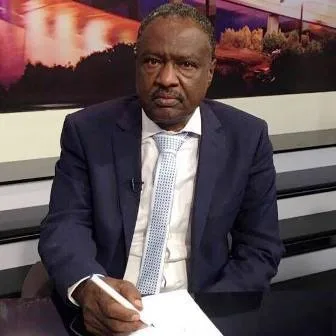The Juba Coup D’état

By Rashid Abdul Rahim
A strong rumor has been circulated over the past two days about a coup in South Sudan. What happened was that President Salva Kiir made major reshuffles within the leadership and strategic positions, removing supporters and allies loyal to Riek Machar.
The changes removed the longest-serving Vice President, James Wani Igga, replacing him with businessman and President Salva Kiir’s son-in-law, Benjamin Bol Mel, a powerful figure who controls the assets of Kiir’s family and relatives. Foreign powers are clearly dictating these changes and have influence over the developments. It is rumored that Ugandan forces entered the country under the pretext of protecting the ruling elite.
The southern actions started with the dismissal of figures known for their close ties to Sudan, most notably security advisor Tut Gatluak, who was appointed ambassador.
The situation escalated with the killing of the army commander in Nasir, David Majok Dak.
South Sudan is not a country where a change of government can take place through peaceful parliamentary procedures or a military coup. A change of government in South Sudan means the outbreak of military conflict, with weapons readily available and people constantly on edge and alert. The powerful military forces in South Sudan are divided between the Dinka and the Nuer as the two main forces, in addition to the Shilluk and Equatoria factions distributed among the tribes.
The ongoing struggle for power is confined to the Dinka and Nuer, and the south will not be stable unless a formula is reached for a power transfer at agreed-upon intervals, or a sustainable division is reached between the two tribes.
In the presence of President Salva Kiir and his Deputy, Riek Machar, reaching such an agreement is seemingly impossible. Dr. Riek believes he is more deserving of the rule because he is more qualified and educated than his rival, while the Dinka find it difficult to accept a Nuer ruler.
The south is divided between these two axes, with each side possessing significant fighting forces.
What confirms that the conflict is confined to the two tribes is that the major figures who emerged from the Shilluk, such as Dr. Lam Akol and Pagan Amum, did not last and disappeared from the conflict.
The White Army (so named because its members paint their bodies with white clay) is composed of strong, fierce, and unruly Nuer youth, making it difficult to reach an agreement between the warring parties.
Various factions of the Dinka tribe are spread across large areas of the south, and their influence is expanding as the largest in the country. They are present in both parts of Upper Nile and Bahr el Ghazal, with Nuer in smaller numbers. The Equatoria region, the third largest region in the country, is confined to its own tribes, excluding the two rivals.
The south is a country where stability is difficult to achieve, and recent foreign interventions, whether from Uganda or from another Arab state, will only increase tensions and plunge the country into a devastating war, from which the greedy instigators will reap nothing but the loss of their wealth.
Shortlink: https://sudanhorizon.com/?p=4643

